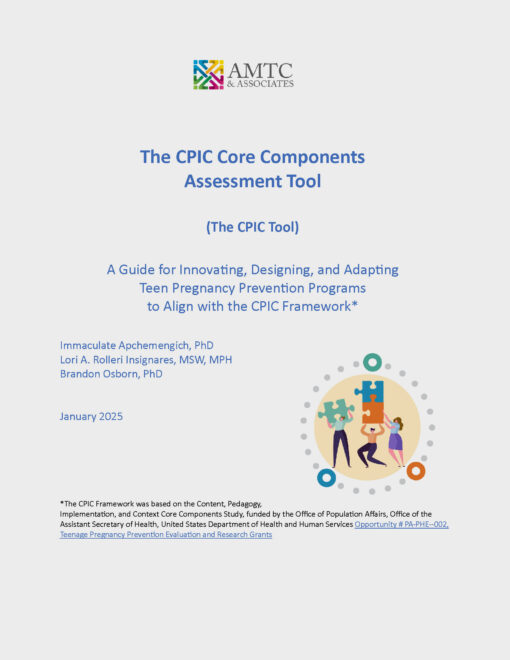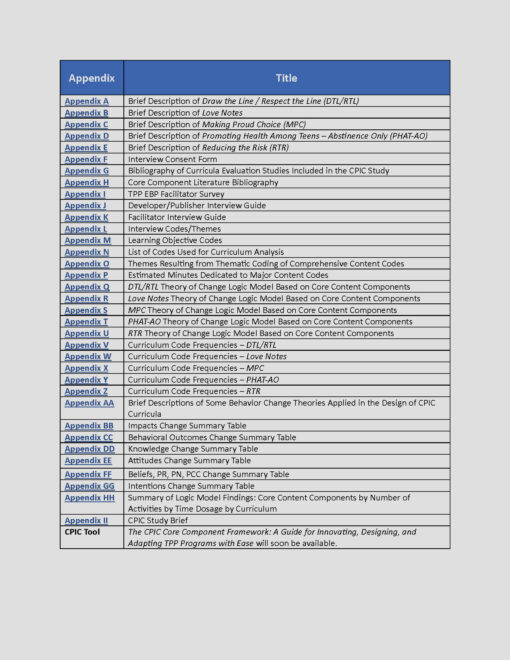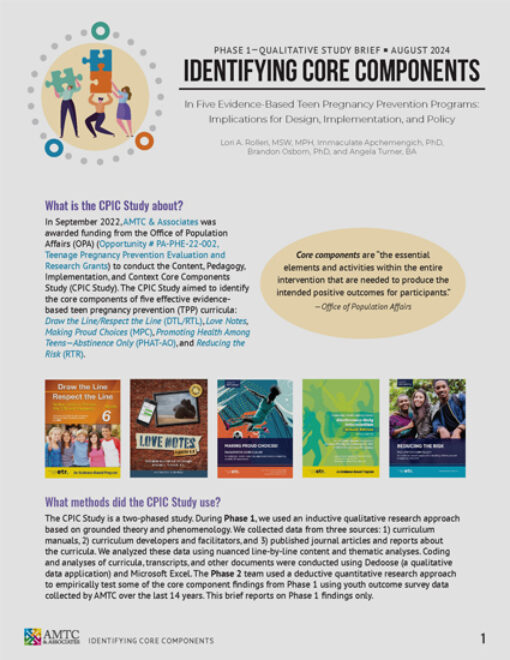Abstract
Objective: The purpose of the Content, Pedagogy, Implementation and Context Study (CPIC Study) was to identify core content, pedagogy, implementation, and context components of five evidence-based teen pregnancy prevention (TPP) curricula and explore how these curricula address health equity, inclusion, and access to services.
Study Design: We conducted a mixed-method, two-phased study to surface the core components of five effective evidence-based teen pregnancy prevention curricula. Phase 1 of the study applied an inductive dominant qualitative research approach informed by grounded theory, content analysis, inductive thematic analysis, and phenomenology. The study analyzed and triangulated data from a review of each curriculum’s original and replication evaluation studies, line-by-line thematic analysis of every learning activity in each curriculum, thematic analysis of curriculum manual front mater and ancillary materials, and interviews with curriculum developers and facilitators. Phase 2 of the study quantitatively analyzed data from over 30,000 youth survey outcomes and implementation surveys as a way to affirm Phase 1 findings.
Results: The study surfaced 22 core components (nine core content components, eight core pedagogy components, and five core implementation components) and nine contextual considerations. The study also found five ways curricula addressed health equity. Phase 2 findings show that all three core content components tested were robust predictors of sexual intentions, even when controlling for curricula differences and other covariates. Among the high school sample, self-efficacy to remain abstinent from sex was consistently the most important predictor, while knowledge of sexual risk was the most important predictor for middle school youth.
Conclusion: The study’s findings can guide curricula developers and practitioners in designing and adapting interventions that address emerging societal issues (e.g., social media influence and mental health concerns), ensuring these programs remain relevant and effective by maintaining fidelity to core components while embracing necessary innovations. While these findings are not generalizable to all evidence-based teen pregnancy prevention curricula, they can provide support and insights to curriculum developers, program implementers and facilitators, evaluators, policymakers, and funders.






